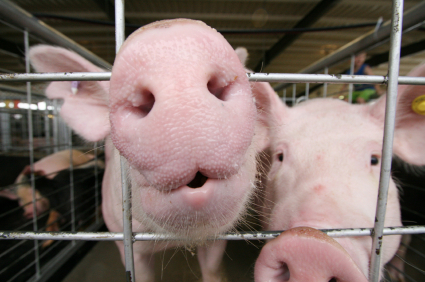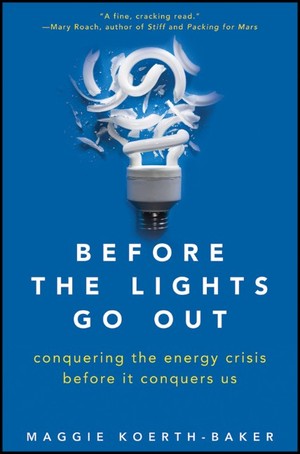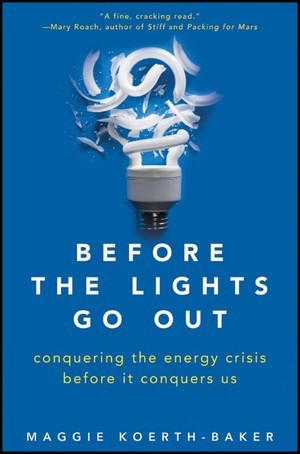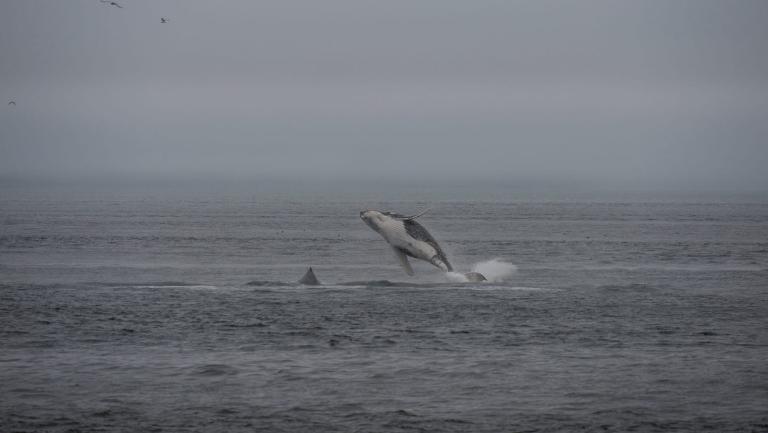Maggie Koerth-Baker, science editor at BoingBoing, has written a book, and the introduction is available free online now. Here’s the basic idea: In America at least, if we want to get anything done on clean energy, we have to divorce it from conversations about climate change.
This is one thing that changed for me during the course of researching and writing Before the Lights Go Out, my upcoming book about the future of energy. I used to approach conversations about energy from a climate-centric perspective.
[…]
But now I think that perspective is dead wrong.
The introduction to Before the Lights Go Out lays out the reality, in polls: Americans are overwhelmingly in favor of clean energy, even though they remain bitterly divided over the impending doomtastrophe of climate change. Koerth-Baker says we can’t capitalize on the first if we keep muddying it up with the second.
In one particularly powerful anecdote from the book, an activist conducting a focus group listens as one of her subjects declares that “climate change is a lie.” Turns out the guy drives a Prius and has changed all of his bulbs to CFLs.
Granted, only the most rapid switch to renewable energy can possibly save us from eye-openingly bad levels of warming. And it’s hard to imagine a transition that rapid without most of the people on the planet being galvanized by the threats to their grandchildren.
But Koerth-Baker addresses this too, in a way, by pointing out that any energy transition, even one carried out by a highly motivated citizenry, is going to be costly and time-consuming — a messy business even under the best of circumstances.
Read the intro (did we mention it’s free?) and see what you think — should we be shoving climate change in a low drawer while we try to harness people’s enthusiasm about clean energy? Or should we just be redoubling our efforts to make climate change less of a political football?





